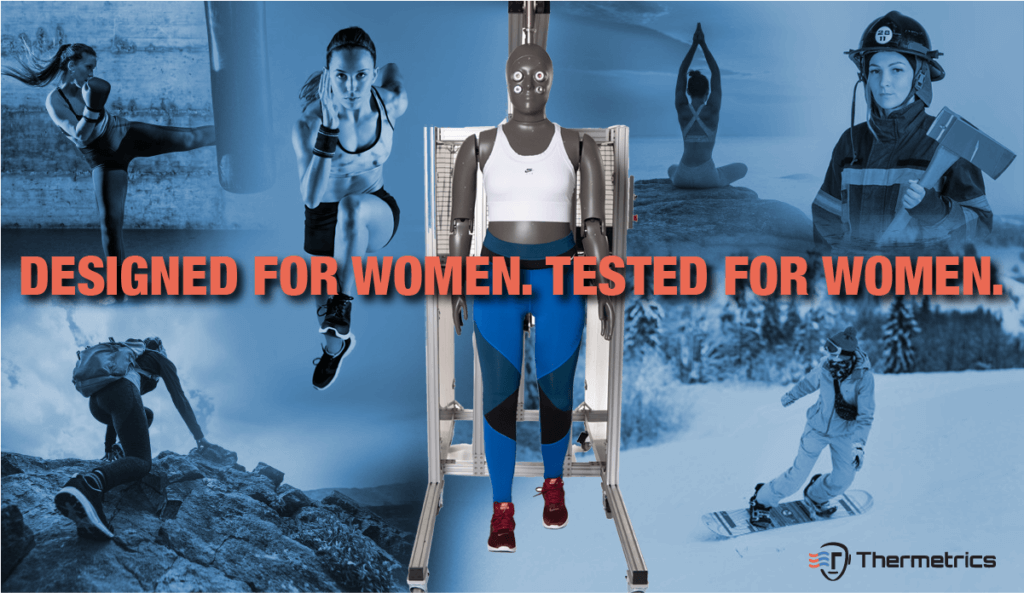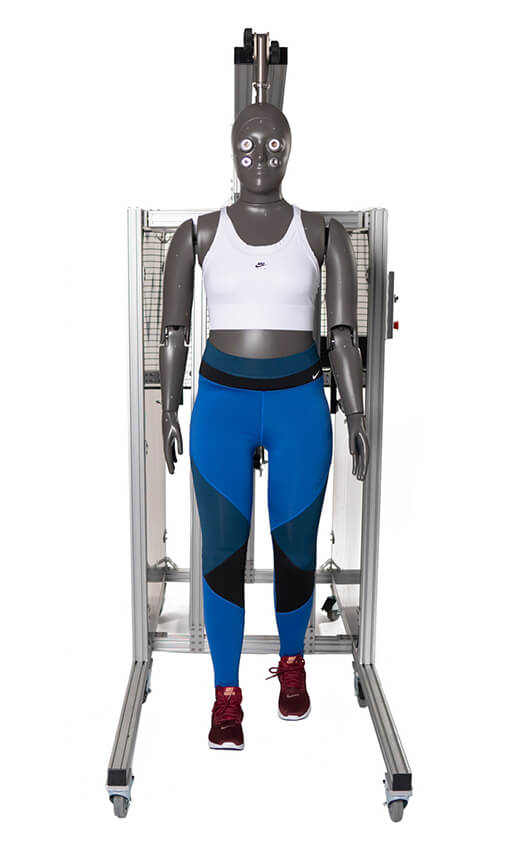
Thermetrics is proud to present our newly developed female thermal manikin! May 4, 2021 Update: The community has spoken and the final selected name is Liz. Thank you to all who participated in her naming!
Our manikins have measured comfort in car cabins, estimated heat stress in protective wear, evaluated space suits for NASA, and supported testing for countless other scenarios. But, all of these scenarios have been tested using a male manikin.
It’s time all garments and gear designed for females are tested with female manikins. Female thermal manikins are vastly underrepresented in the research and testing arena, and those that are in use often resemble store mannequins—a far cry from realistic female anthropometry. As a result, products designed to enhance performance, health, and safety for women may not perform as promised.
You’ve designed for women. Now you can test for women.

About the names
Cori. “Cori” is suggested to honor Gerty Cori (1896-1957) who was the first woman awarded the Nobel prize in physiology and medicine. She earned the Nobel Prize in 1947 for her discovery of the course of carbohydrate metabolism, where glucose is broken down into lactic acid and used for energy storage, known as the Cori Cycle. Gerti Cora was a trailblazer during an era of male-dominated scientific research. Understanding energy storage and consumption is key for thermal manikins, especially if they couple to a physiology model like this one does.
Joules. The name Joules is a natural nod to the energy balance critical to the design and use of Thermal manikins. The Joule is a derived energy unit equivalent to kg m2/sec2. More practically, one Joule is the energy dissipated when 1 ampere flows through a resistance of 1 ohm. Or in the case of this specific female manikin with surface area of 1.61 square meters, a 1 MET activity level during a 30 minute ASTM F2370 test duration would generate 168,664 Joules from the manikin heaters.
Liz. The name “Liz” is proposed in honor of Dr. Elizabeth “Liz” McCullough who spent her career working with manikins, and who was a strong female leader and pioneer in this field. No female scientist worldwide has done more with thermal manikins to advance testing, development, and standardization of improved protective clothing, sleeping systems, and personal protective equipment. Liz has published over 100 scientific papers and book chapters, and her work has been incorporated into textbooks in multiple languages. She has been the primary author of several ASTM standards, including standards utilizing thermal manikins. Liz was the driving force behind developing a successful and internationally known textile testing program using manikins at Kansas State University.
